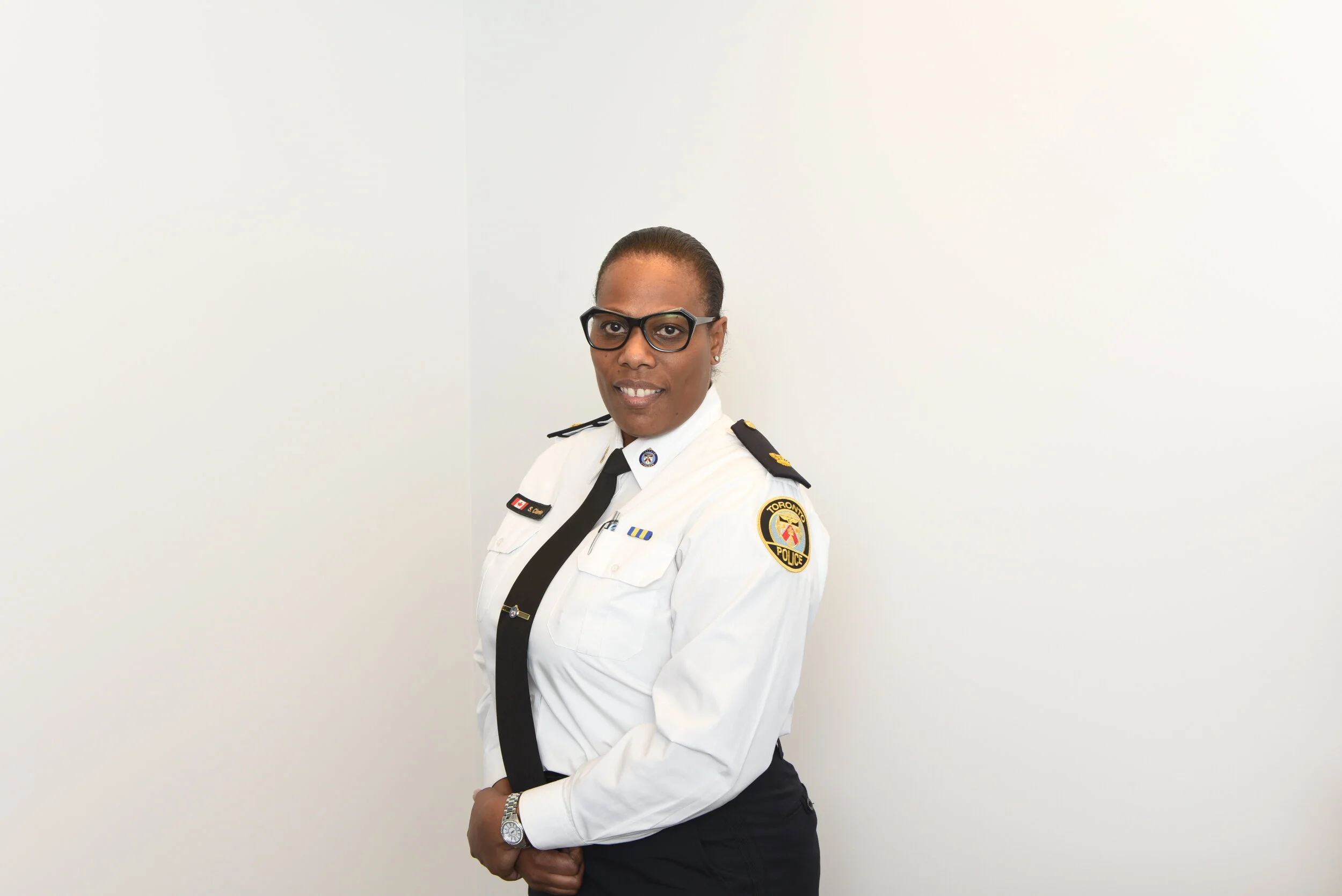Stacy Clarke is Toronto Police's first Black female Superintendent
“Mom, this is big”.
That was Stacy Clarke’s 12-year-old son first reaction after learning that his mother was promoted to Superintendent, making her the first Black woman to achieve the position in Toronto Police Service’s 183-year-old history.
The promotion was effective on February 15.
“He and my 14-year-old daughter have been in the spaces of law enforcement as I have always taken them to events,” she pointed out. “They get to see the rise of many different police leaders. With my daughter, she feels and embraces that there isn’t anything that she can’t do. That is a huge thing for me.”
Breaking the glass ceiling means Clarke is in a unique position to pave the way for others.
“I am standing on the shoulders of many,” she said. “Truthfully, this is bigger than Stacy and I know that. Watching Insp. Sonia Thomas (the first Black female senior officer retired in 2019) making attempts at this particular rank and not seeing it happen made me think it couldn’t happen. Representation matters and we need to see that these types of barriers can be broken. This is a powerful and significant moment for me.”
Clarke joins Isobel Granger as the highest-ranking Black female police officers in Canada. Granger was promoted last May just eight months after Peter Sloly became Ottawa’s first Black Police Chief.
“Isobel reached out to me by Twitter and we spoke after that,” said Clarke. “We both understand the place we are in right now and the responsibility we have of lifting others. The mentorship and guidance that I have received made this promotion possible. This was no easy feat and I recognize all of those who have come before me and will come after me.”
Last summer, protestors at an anti-Black racism rally outside police headquarters targeted Clarke, questioning her commitment to the Black community.
She wasn’t fazed by the confrontation.
“What took place that day reaffirmed for me that I have to be at the table where important decisions are taken,” Clarke said. “I truly have always believed that there needs to be a diverse presence within policing completely and the answers weren’t going to come if we were not represented at those tables. It also indicated there was a need for me to rise in the organization and amplify the voices of those who are affected. Once I started talking, I knew what I was saying was resonating with them. I knew they could see that I was emotional and I could feel what they were feeling and how important it was for me to amplify that in my organization.”
Retired Deputy Chief Keith Forde is encouraged and excited by Clarke’s promotion.
“Hard work, dedication, commitment and dedication to purpose do have their rewards,” he said. “As Stacy blazes the trail for other women of colour within Toronto Police Service, expectations of her would be high, even to the point of unreasonable. She should take some comfort in knowing that her entire community is behind her and rooting for her success and further advancement.”
Spending the early part of her career working in the Community Response Unit, Youth Bureau and Intelligence, Clarke also split four years between the Homicide and Divisional Policing Support Units before being transferred to the Police College in 2008. After being promoted two years later, she was assigned to 13 Division as a Sergeant. In 2012, she was transferred to 22 Division where she worked in the Primary Response Unit and Detective Office.
As a member of Professional Standards, she was assigned to the Police and Community Review (PACER) project that focused on how the Service could enhance public trust and safety while delivering a bias free service.
Former Jamaican Canadian Association (JCA) president Audrey Campbell was Clarke’s co-chair on the PACER committee.
“Working side by side with Stacy to address contentious police and community issues, I quickly learned that she was a person of integrity and true to her word,” said Campbell. “She understood, she cared, she never shied away from difficult conversations and she always reminded us that she is a Black woman, a mother and policing is her career. I have no doubt that this is the first of many glass ceilings she will shatter.”
Supt. Stacy Clarke (Photo by Ron Fanfair)
Association of Black Law Enforcers (ABLE) President Jackie Edwards said the promotion is significant on many levels.
“It responds to a call for greater representation of Black people in the senior ranks,” she said. “It is also important because of her longstanding respect and demonstrated understanding of the concerns of the Black and racialized communities.”
Promoted to Staff Sergeant in 2016, Clarke led the Learning Development & Standards Section at the Police College before being elevated to the senior ranks three years ago and assigned to 14 Division as the second in command.
Since last July, she has been at the helm of the Community Partnerships & Engagement Unit (CPEU) that aims to provide an effective, efficient and economical support service to members in the practical application of community mobilization principles as well as developing, enhancing and maintaining constructive community partnerships.
Clarke is leading the unit’s robust modernization.
“We are looking at all of the things we do in terms of community engagement and trying to determine if they are impactful,” she said. “There is a cry for change from the community. We have to see if there’s a way we can do things differently while ensuring that we are centering community voices.”







